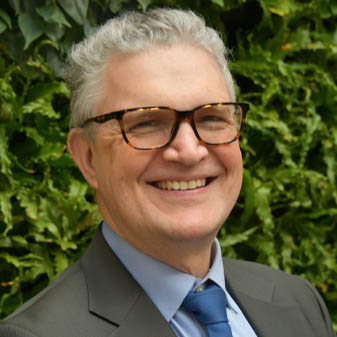
The Unraveling of the CDC and the Rise of State-Based Public Health Directives
Colleagues:
The events of the past month threaten to undo a century of progress in public health.
On August 8, a gunman fired more than 500 rounds into the Centers for Disease Control and Prevention (CDC) headquarters in Atlanta. His stated motive was to “make the public aware of his distrust of vaccines.” Officer David Rose, a local police officer who responded heroically, was killed. The gunman took his own life. Thankfully, no one else was injured.
Less than three weeks later, on August 27, the White House dismissed CDC Director Susan Monarez. Five of the CDC’s top leaders immediately resigned in solidarity. Within days, states began charting their own divergent paths. Washington, Oregon, and California announced the creation of a West Coast Health Alliance to provide evidence-based recommendations on immunizations and vaccine safety. Meanwhile, Florida moved in the opposite direction, preparing to allow residents to opt out of all vaccine mandates.
Taken together, these events reveal a disturbing trajectory: violence against public health institutions, political pressure undermining scientific expertise, and a growing patchwork of state-based vaccine rules.
A Dangerous Polarization of Medicine and Public Mistrust
Medicine is at risk of becoming red-state and blue-state practice, while it should be based on science and objective evidence. Physicians may find themselves not only explaining the science but also battling political perceptions that frame their advice as partisan. In such an environment, the wrong word can cause a patient to dismiss sound medical guidance as “politically biased.” Worse, physicians may face ostracism, threats, or even violence.
Medicine should rise above politics. When a child is sick, or when a vaccine prevents deadly disease and protects newborns too young to be immunized, public health should unite us. Instead, political polarization and social media platforms that amplify distrust have eroded confidence in physicians and hospitals. According to a recent JAMA Network Open survey, public trust in these institutions has fallen below 50 percent.
Restoring Trust
While the unprecedented measures taken during COVID-19 pandemic meant to stop the rapid spread of the disease meant well, some of the measures taken and affirmative and absolute claims made by political and public health officials turn out not to be based on solid and validated scientific evidence. The unintended consequences of these actions and claims unfortunately caused mistrust of public health and medical professionals when it comes to immunization. Rebuilding that trust will not be quick or easy. It will require diligence, empathy, humility, political skill—and unfortunately, money. In the exam room, physicians must meet patients where they are: listening first, giving them space to process, and respecting their need to “do their own research,” then offering their professional opinion. We need to go back to the basics of physician-patient relationship and communication without injecting our personal politics.
At the state level, public health leaders must continue to advocate for evidence-based policy, even while addressing public skepticism. Federally, we must be careful not to present science as immutable dogma. Instead, we should state clearly: these recommendations are based on the best available science today. It is important to transparently lay out the risks, benefits, and alternatives, if any, of any treatment we offer our patients. However difficult, restoring trust is essential for the health of our patients.
A Call for Leadership
The actions of the past month are unacceptable. Leadership matters, and accountability matters. HHS needs to objectively analyze data and publish reasonable guidelines in a way that restores credibility and stability. Fragmentation of our public health policies will only set us back and should be avoided. Public health officials must be committed to science, public health, and rebuilding trust across the political spectrum, and be held accountable.
In the meantime, Senator Bill Cassidy, who chairs the Senate Health, Education, Labor, and Pensions Committee, should exercise rigorous oversight of federal health agencies. If the federal government cannot maintain credibility, states will continue to fracture along partisan lines—leaving Americans with unequal and uncertain access to public health protections.
Standing Firm
Physicians across the country are practicing medicine under extraordinary pressure. They are heroic for continuing to serve patients in this volatile environment. But they cannot do it alone. Professional organizations, policymakers, and communities must stand with them.
We cannot remain silent while public health is politicized and trust in medicine erodes. The integrity of our health system—and the safety of our patients—depend on it.
All the best,
David Jakubowicz, MD, FACS
MSSNY President



